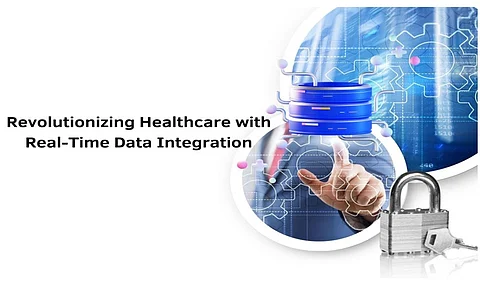

In the modern digital era, the healthcare industry is undergoing a significant transformation with the adoption of real-time data integration and middleware solutions. These advancements are revolutionizing healthcare delivery by enabling seamless information exchange across platforms, improving patient experiences, and optimizing operational efficiency. The research of Suman Neela explores how these technologies are reshaping the future of healthcare, fostering interoperability, and driving data-driven decision-making for improved patient outcomes.
Healthcare institutions churn out a whole lot of clinical data on a daily basis, and therefore, management of this data is quintessential for improving patient care. With real-time data processing, clinicians are able to retrieve information regarding patients instantaneously, which in turn enables them to act effectively and efficiently in decision-making. In chronic disease management, timely interventions prevent complications and positively influence patient outcomes. With real-time analytics capabilities, diagnostic decisions can be made with improved accuracy while workflow disruptions are minimized, resulting in an overall better quality of care. Instant data processing facilitates better resource utilization and allows care to be given proactively. Health systems capitalize on real-time insights for driving data-centered decision-making, in turn being transformed with higher efficiency, accuracy, and responsiveness within the digital realm of healthcare.
Data exchange across systems remains a major hurdle for the interoperability of healthcare. Middleware solutions are essentially intelligent intermediaries enabling real-time data exchange while ensuring data integrity, privacy, and regulatory compliance. By connecting various healthcare IT systems, these solutions improve care coordination, workflow enhancement, and clinical decision support. In emergency care, for example, getting patient information faster can significantly reduce response times and improve patient outcomes. Middleware eases the flow of information between EHRs, medical equipment, and analytics platforms, thus contributing to a more integrated healthcare system. Interoperability demands are growing, and middleware remains a bridge in closing the gaps toward effective, patient-centered care.
Advanced middleware integration solutions are revolutionizing the processes of insurance claims acquisition. They enhance the process through automation along the claims verification, fraud detection, and risk assessment dimensions, resulting in accuracy and speedy processing. Accessibility in real-time to health providers simplifies the processes on eligibility verification and reimbursement workflows so that administrative burdens are lowered. Anomalies can be detected through AI-driven analytics and automated data exchange to minimize fraud and improve risk assessment. Frictionless connection further improves customer satisfaction via faster claims settlement and better transparency. The interoperability will facilitate communication between insurance systems and external data sources in meeting the requirements of the applicable regulations as well as operational efficiency. As digital transformation grows, integrated platforms will provide updated methods to workflow, cost savings, and more reliable services for insurers to be more service responsive.
Essential for today's modern-day healthcare, resilient EHR-integrated enterprise architecture structures including imaging systems and wearables present patient management data securely and scalably. The APIs and event-driven architectures together enhance interoperability such that information access becomes seamless across patient records. As such, the healthcare provider can access critical data promptly leading to better decision-making and care provided to patients. This structured framework builds strong foundations of connectivity and efficiencies for the health ecosystem to optimize operations and outcomes and ensures adaptability in a rapidly evolving digital landscape.
AI and edge computing are transforming healthcare by enabling faster, more accurate data analysis. AI-driven decision support systems enhance diagnostics, reduce errors, and optimize treatments. Meanwhile, edge computing reduces latency, ensuring real-time patient monitoring, which is crucial in ICUs and remote care. This synergy improves healthcare efficiency, enabling swift responses to critical conditions and enhancing patient outcomes. By decentralizing data processing, these technologies enhance accessibility, security, and speed, driving significant advancements in modern healthcare delivery and innovation.
Due to the ever-growing digital health sector, there is an increasing need for cybersecurity to protect patient data from surging threats. To harmonize security, end-to-end encryption includes protecting sensitive information with role-based access controls from unauthorized access. While monitoring real-time alerts for other threats, the entire network is part of the overall trend of heightened security. Compliance with HIPAA and GDPR Standard Operations wherein data are protected and increases trust in the digital health space. With stronger security frameworks, exchange of data becomes safer, risk of injury gets lesser, and patient outcomes will be great. Now, as society undergoes an unprecedented transition into a world of incessantly aggravating cyber threats, proactive security measures are imperative for protecting the overall integrity of the healthcare system.
The future of healthcare IT is upon the convergence of 5G, blockchain, and quantum computing. 5G develops a new era in telemedicine with ultra-fast, low-latency connectivity for seamless delivery of remote care. Blockchain brings security and non-repudiation to medical records, increasing their integrity. Quantum computing fundamentally changes drug discovery and genomic analysis, thus speeding personalized medicine. These technologies together will aid better patient care while optimizing medical workflows and promoting innovation for a far more efficient, secure, and data-oriented healthcare ecosystem.
Thus, it can be summed up that the real-time data integration and middleware solutions are revolutionizing healthcare by improving efficiency, security, and patient care. These advancements, according to Suman Neela's research, will not just facilitate the streamlining of healthcare businesses but impact the very future of digital health ecosystems. Innovations within the health sector are definitely to set a more accessible, accurate, and responsive patient care system.
